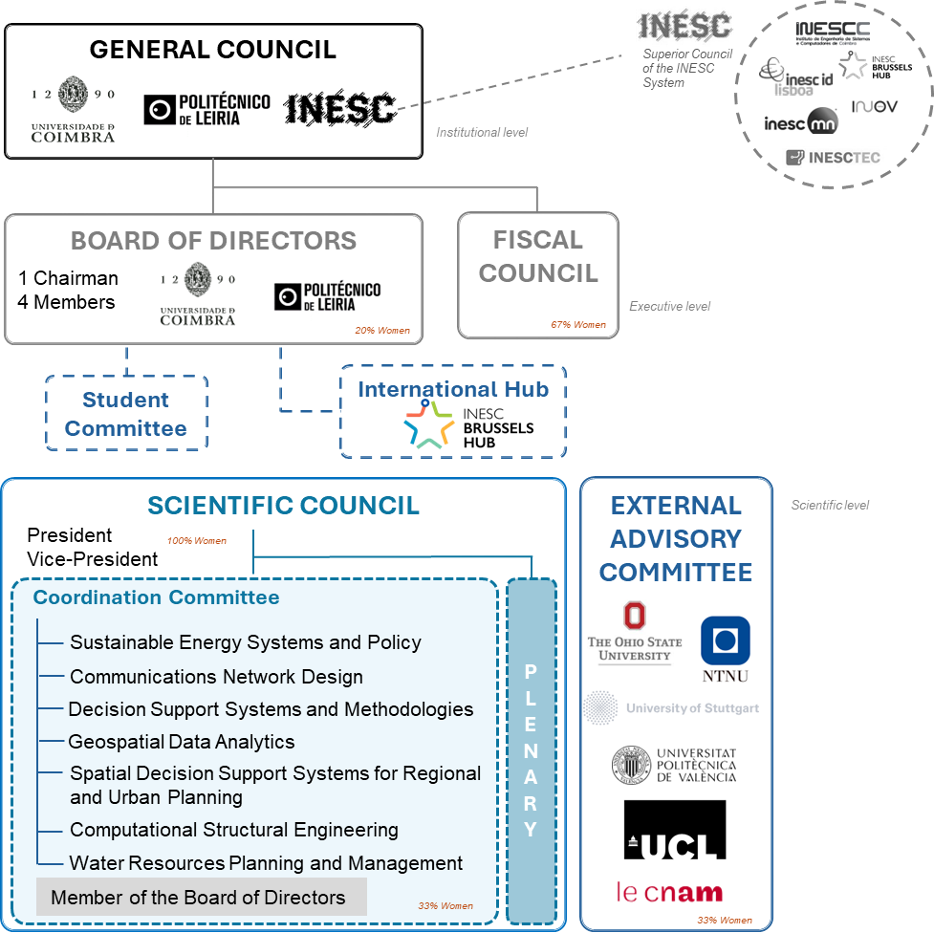Research in Portugal is mostly developed through R&D Units, which are the core of the Scientific and Technological System carrying out fundamental and applied research s in all scientific and technological areas as well as knowledge transfer to the economic fabric and the society. There are currently more than 300 R&D Units, which are distributed through different areas of knowledge and throughout the national territory, involving more than 22 000 researchers. The R&D Units can be entities integrated in universities or polytechnics, or be partnerships between them, or have an independent statute and autonomous activity. They are public or private non-profit research institutions and can also be configured as Associate Laboratories or be part of Collaborative Laboratories. R&D Units are financed and evaluated by the Portuguese public funding agency for science and technology, FCT (Foundation for Science and Technology).
The governance structure of INESCC, as stipulated in its statutes, comprises the following bodies:
Comprising six members representing the shareholders, which ensures their participation in INESCC’s administration and oversight. Their duties include electing the Board of Directors and approving the institute’s activity plan, budget, activity reports, and management/budgetary reports.
In representation of the shareholders:
Consisting of 5 PhD researchers, this body oversees the day-to-day management of INESCC. They are tasked with preparing and executing activity plans and financial management, with the support of the administrative staff, as well as signing contracts and representing the institute externally.
Responsible for scrutinizing INESCC’s accounts and providing reports to the General Council, ensuring transparency and accountability in financial matters.
Operating at two levels – the Plenary and the Coordination Committee (CC-SC) – this council is pivotal in guiding INESCC’s scientific endeavors. The Plenary includes all integrated PhD researchers and PhD students supervised by INESCC integrated researchers are invited to participate. It convenes at least thrice annually to be informed and offer feedback on various aspects of the R&D institution, including activity plans, budgets, and scientific/management and assessment reports. The CC-SC, comprising 7 PhD members elected by the Plenary, provides scientific guidance to the Board of Directors, facilitating the implementation of scientific strategies through regular meetings between the two bodies.
The Scientific Council includes all INESCC’s researchers holding a PhD degree
Coordination Committee of the Scientific Council :
Comprising external researchers, this committee offers strategic counsel regarding research directions, enriching INESCC’s perspectives with insights from the broader scientific community.


Copyright 2024 Instituto de Engenharia de Sistemas e Computadores de Coimbra. All Rights Reserved | Powered by ZIP Design